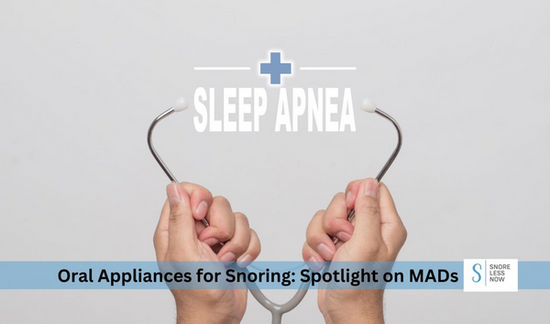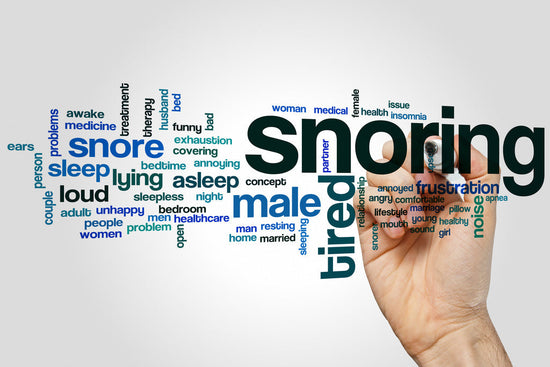When the soft melody of a bedtime lullaby turns into the loud, disruptive rhythm of snoring, it not only disturbs peaceful sleep but also affects the people nearby. We often dismiss snoring as an annoying habit, but it could actually be a sign of something more serious. Snoring isn't just about making noise; it often indicates that there is something blocking the airway, which can be a significant problem. If you've ever felt frustrated by the constant snoring or if traditional remedies haven't helped, it's important to understand that snoring can have an impact on your health. In this article, we will explore the causes and effects of snoring, its connection to sleep apnea, the different treatment options available, and a comprehensive guide to upper airway surgery. This in-depth discussion aims to provide valuable information for anyone considering surgical intervention to address snoring.
Diving Deeper into the World of Snoring
Before we dive into upper airway surgery for snoring, it's important to grasp the basic concept behind this condition. Snoring occurs when the flow of air is obstructed in the nose and throat while sleeping. This blockage causes the tissues around these areas to vibrate, producing the well-known snoring sound, which can sometimes be quite loud. While not all snoring is necessarily a cause for concern, it can often result in sleep deprivation, daytime tiredness, irritability, and potential health issues. (1)
The Hidden Peril: Snoring and Sleep Apnea
Snoring might also be a sign of sleep apnea, a serious sleep disorder that involves repeated stops and starts in breathing. Sleep apnea, often characterized by heavy snoring followed by periods of silence (when breathing stops), is a potentially dangerous condition. It can lead to numerous health issues such as heart disease, high blood pressure, type 2 diabetes, metabolic syndrome, liver problems, and even complications with medications and surgery. Consequently, treating snoring isn't just about achieving peaceful nights; it's about ensuring better overall health. (2)
The Exhaustive Path: From Lifestyle Changes to Mandibular Advancement Devices
There's a myriad of options available when it comes to treating snoring. Lifestyle changes like weight loss, quitting smoking, limiting alcohol consumption, and changing sleep positions can sometimes alleviate snoring. Similarly, anti-snore devices like nasal strips, special pillows, and mandibular advancement devices can offer some relief.
In cases of sleep apnea, the common treatment is Continuous Positive Airway Pressure (CPAP). In this therapy, a machine delivers air pressure through a mask while you sleep, ensuring the airway remains open. But what if you've already exhausted all these alternatives and seen no improvement? This is where upper airway surgery for snoring might be an option worth considering.
Upper Airway Surgery for Snoring: An Introduction
Upper airway surgery refers to a series of procedures designed to remove or shrink tissues in your throat or nose that may be causing or contributing to your snoring. It's a solution that comes into the picture when other non-invasive methods fail to resolve the issue or if the snoring is a result of a structural problem in the airway, such as enlarged tonsils or a deviated septum. (3)
Unveiling Upper Airway Surgery: The Types
Upper airway surgery is an umbrella term that encompasses a wide range of surgical procedures, each designed to address a specific cause of snoring. The surgery can involve a single procedure or a combination of procedures, depending on the patient's specific needs.

For instance, Uvulopalatopharyngoplasty (UPPP) is a procedure that removes excess tissue in the throat, making the airway wider. A tonsillectomy, often performed in children, removes the tonsils if they're causing an obstruction. Adenoidectomy is another procedure that removes adenoids if they are causing or contributing to snoring. In cases where the nasal septum deviates, a septoplasty might be performed to straighten the septum, facilitating better airflow. Other procedures like tongue base reduction or hyoid suspension may be recommended depending on the specific anatomical structure causing the snoring.
The Decision: Weighing the Pros and Cons of Surgery
Upper airway surgery can be an effective solution to stop snoring and alleviate sleep apnea symptoms. However, it is crucial to remember that all surgical interventions have some risks and potential complications.
Possible complications of upper airway surgery can include bleeding, infection, voice changes, or difficulty swallowing during the recovery period. Additionally, snoring can sometimes return after surgery. Hence, it's vital to consider these potential risks and have a thorough discussion with your healthcare provider. (4)
The Final Stage: Post-Operative Care and Life After Surgery
Post-operative care is an important part of any surgical procedure. After upper airway surgery, the recovery period can vary depending on the type of surgery performed and the patient's general health. It's essential to follow the surgeon's post-operative instructions, which may include medications, dietary changes, and follow-up appointments.
Life after surgery may bring about a marked change in sleep quality and, by extension, the quality of life. Surgery aims not only to stop snoring but also to reduce the risk of other health issues associated with snoring and sleep apnea, such as heart disease or stroke. (5)
The recovery period after upper airway surgery
The recovery period varies depending on the type of surgery and the individual's overall health. Generally, most people return to normal activities within one to two weeks following surgery. However, complete recovery may take several weeks.
The Final Word: Is Upper Airway Surgery for Snoring Right for You?
Choosing to undergo surgery is a significant decision that should be made after careful consideration. If snoring has started affecting your health and lifestyle, and all other treatments have failed, then upper airway surgery might be an option. However, it is essential to thoroughly discuss the risks and benefits with your healthcare provider before making this decision.
The ultimate aim is not just to bring an end to those noisy nights but to achieve better overall health and quality of life. After all, a peaceful night's sleep is not a luxury but a necessity everyone deserves.





